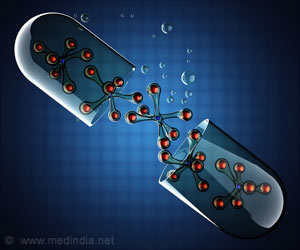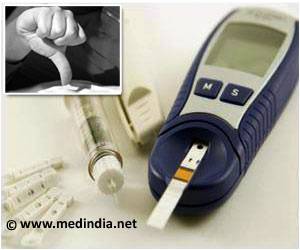Bangalore, Sept 8 (ANI/Business Wire India): Biocon Limited, India's premier biotechnology company, announced the results of an ascending dose study with their oral insulin drug (IN-105)
The results of an ascending dose study with their oral insulin drug (IN-105) were presented by Biocon Limited, India's premier biotechnology company, at the European Association for the Study of Diabetes (EASD) meeting in Rome on September 8.
The study involved dosing Type two diabetes subjects with single doses of 0 mg (placebo), 10 mg, 15 mg, 20 mg and 30 mg tablets of IN-105 in five separate periods before a mixed 600 kcal breakfast.The outcome measurements were the safety and tolerability of IN-105, as well as the pharmacokinetics and pharmacodynamics of IN-105. The results showed that IN-105 was safe and well tolerated by patients.
Absorption of IN-105 was proportional to the dose administered; a serum average Cmax of 350 milliunits, litre was reached at 30 minutes post dosing at the highest dose of 30 mg. The resulting glucose drops showed linearity with respect to the dose. The two hour postprandial glucose rise over baseline for the 10, 15, 20 and 30 mg doses were 15.3, 24.1, 31.3 and 49.5 mg/dl lower than the corresponding rise for placebo.
There were no symptomatic hypoglycemic events observed at any of the doses. Due to the rapid pharamacokinetics of the drug, there were transient values of hypoglycemia seen soon after the administration of the drug; however these values did not result in any symptoms due to the rapid alleviation of glucose levels due to the meal that followed the drug. C-peptide values were also significantly depressed over all the doses tested, indicating a possibility of beta cell rest in patients dosed with IN-105.
Longer term, six month, studies are being planned in type two diabetic subjects to understand the impact of chronic dosing of IN-105 on postprandial glucose control and glycated haemoglobin.
"The present study shows that IN105 delivers physiologically active insulin orally in concentrations sufficient to decrease post-meal hyperglycemia and to decrease the burden of the meal on endogenous insulin secretion. These data support the feasibility of providing insulin orally to treat postprandial hyperglycemia in diabetic patients" affirmed Dr. Harold E Lebovitz, M.D, FACE, Professor of Medicine, Endocrinology and Diabetes State University of New York Health Science Center at Brooklyn.
Source-ANI
RAS/L
 MEDINDIA
MEDINDIA




 Email
Email










